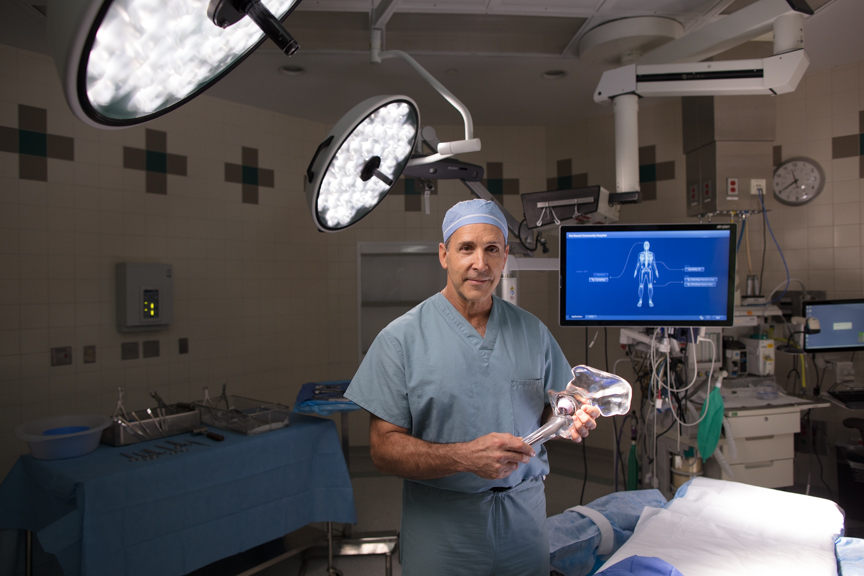When is it time?
August 5, 2020
Don’t suffer any longer – the time is now

Aching joints can seem to be a natural progression in aging, but how do you know when it’s time to do something about it? Philip Ludkowski, M.D., Chief of Orthopedics at NCH, recently talked to us about total joint replacements.
He suggests it’s time for a surgical consultation “when the bad days outnumber the good days, when the pain wakes you from sleep or when the pain keeps you from performing healthy exercise activities or activities you enjoy doing.”
Dr. Ludkowski suggests some key indicators are, “when you find yourself driving around a parking lot waiting for a spot closer to the store to open up. Surgery should be considered when your quality of life is adversely affected and non-surgical means such as medications, weight loss, injections, activity modifications, physical therapy or braces are no longer helpful.”
For short term inconvenience, discomfort and some pain from surgery, a patient in return will have a functional joint that no longer hurts. In fact, with knee or hip replacement surgery, the patient generally starts walking the day of surgery with an assistive device like a walker or crutches. Most people use a walker or crutches for one or two weeks, and then possibly a cane for one or two weeks. Two to four weeks post-surgery most patients are driving again.
Many patients are concerned about scheduling an elective surgery while the world is still dealing with a pandemic. “It’s safe to get an elective surgery right now, and bear in mind no one knows for certain when COVID-19 will go away or an effective vaccine will be available. You could be waiting a long time for pain relief,” says Dr. Ludkowski. “NCH has resumed all of its elective procedures and services, including our joint replacement procedures, in strict adherence to guidelines set by the Illinois Department of Public Health.”
“To keep NCH employees, patients and community safe, we have implemented numerous safety precautions including universal masking, temperature screening, social distancing and restricted visitation until further notice,” says Chief Medical Officer Alan Loren, M.D., PhD. “All are required to wear a mask when entering the hospital and outpatient care facilities and throughout their stay. We are following the best practices for hygiene and infection control and social distancing.”
Patients who are hospitalized with the COVID-19 virus are isolated on a specialized treatment floor, with dedicated staff caring for them. As of press time, there have been no reported cases of surgical patients at NCH catching the virus from their hospital experience.
Dr. Ludkowski also strongly recommends patients follow the advice of their physician/surgeon, their team and hospital staff as they prepare for and recover from surgery. “The more preparation you do before surgery the better your recovery will be after surgery.”
If you think you’ve experienced the signs that you need a total joint replacement, don’t settle for the pain. Contact 847-618-9900 today or learn more here.